OFFSHORE EXPLORATION
Cape Town paddlers protest against imminent arrival of seismic survey ship
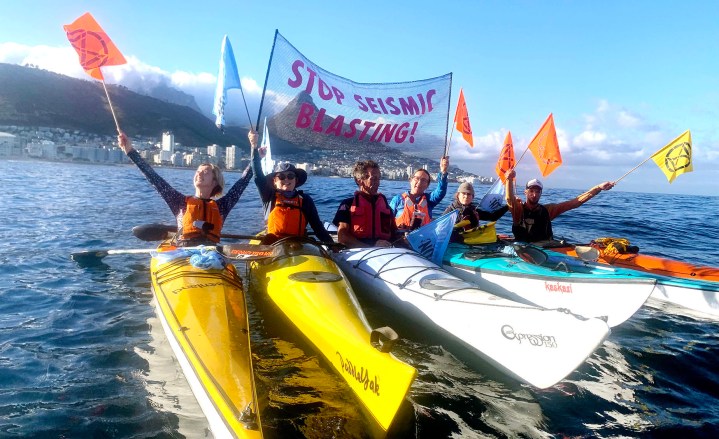
The countdown has begun for Searcher Geodata to begin its seismic survey for oil and gas reserves off South Africa’s West Coast in January. Cape Town paddlers took to the sea to protest at the arrival of the seismic survey ship.
On Sunday, 17 December and Monday, 18 December, Cape Town paddlers took to the sea to protest at the arrival of Searcher Geodata’s Ramform Atlas seismic survey ship in South African waters.
The ship was set to arrive in Cape Town between Sunday and Monday, according to a marine tracker, but its status changed to “offshore” towards the end of Monday. Searcher said its destination was always supposed to be “offshore” as the ship can refuel offshore.
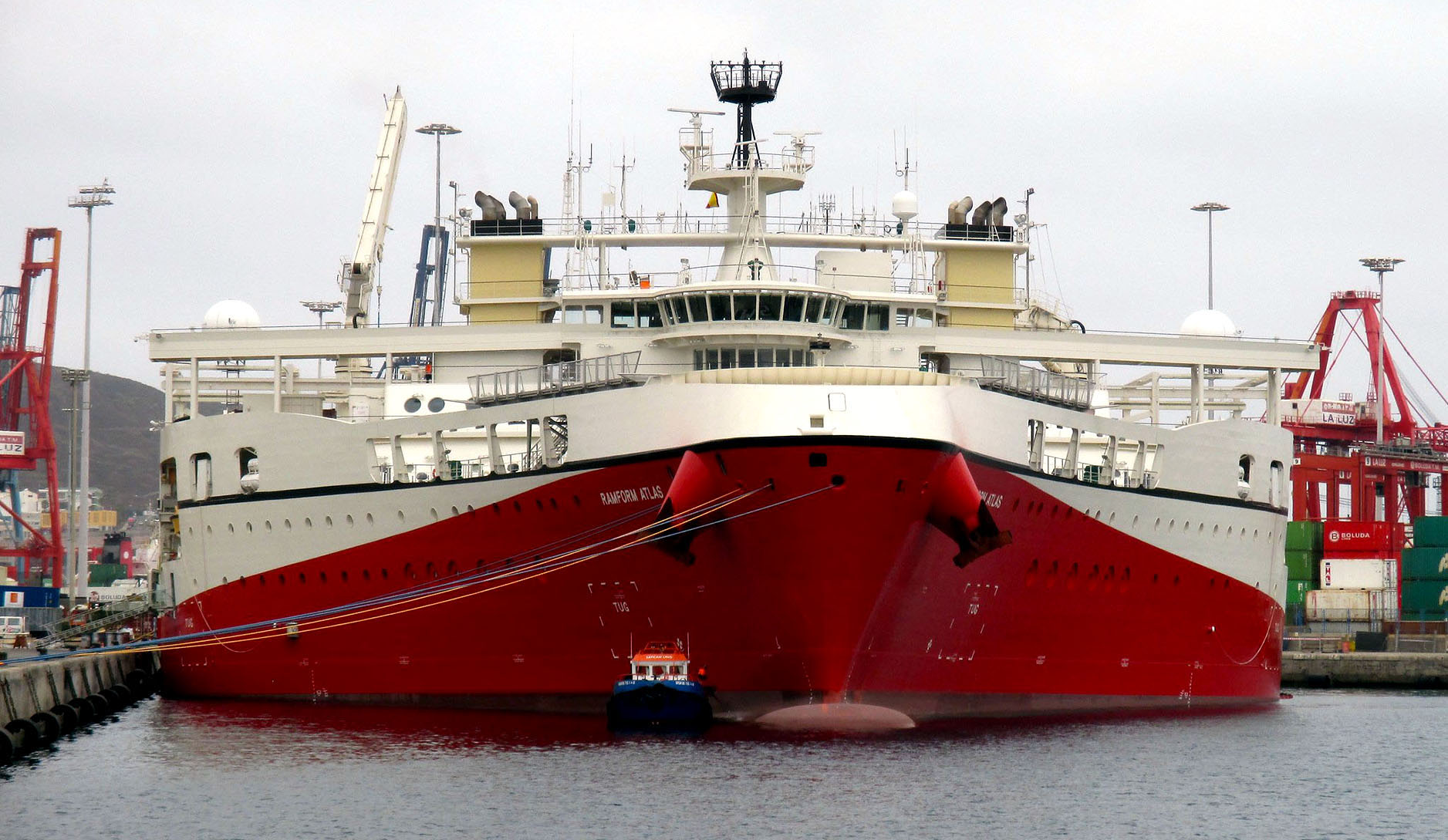
Searcher Geodata’s seismic survey ship Ramform Atlas docked in the port of Las Palmas, Spain. (Photo: Miguelangel / Flickr)
The Australian company’s 127-day survey will begin in January and be completed by April. It will create a 3D map of the seafloor and subsurface of the Earth by blasting continuous sound pulses at 255 decibels over 30,000 square kilometres, 256km offshore between St Helena Bay and Hondeklip Bay.
This will enable the exploration for and production of hydrocarbons over several petroleum licence blocks. The survey area at its closest point is about 218km offshore of the Western and Northern Cape.
During the survey, air guns or vibrators are used to produce controlled shockwaves that penetrate the seabed and interact with different rock layers, bouncing back to the surface where they are detected by arrays of sensors, a process which can harm marine life and kill fish, particularly those with swim bladders.
‘It’s not just Searcher’
On Monday, when protesters and paddlers had gathered at the Oceana Boat Club ahead of the ship’s arrival, Judy Scott-Goldman, a spokesperson from Extinction Rebellion Cape Town, said Searcher Geodata had admitted in its environmental impact assessment that the seismic survey would harm marine life.
Protesters say that seismic blasting not only devastates marine life but is also the first step in drilling for oil and gas, and in the face of a worsening climate crisis the world cannot afford to burn any more fossil fuels.
This is supported by science indicating that no new long-lead-time upstream oil and gas projects should be pursued — on top of no new coal mines, mine extensions or coal plants.
Scott-Goldman said, “It’s not just Searcher, there are multiple seismic applications going on around our coast (while awaiting the Ramform Atlas, another seismic vessel was spotted in Cape Town, Shearwater, which was previously contracted by Shell). This Ramform Atlas is a killing ship that will come and damage marine life to an extent that we will never fully know because there’s not enough research being done.”
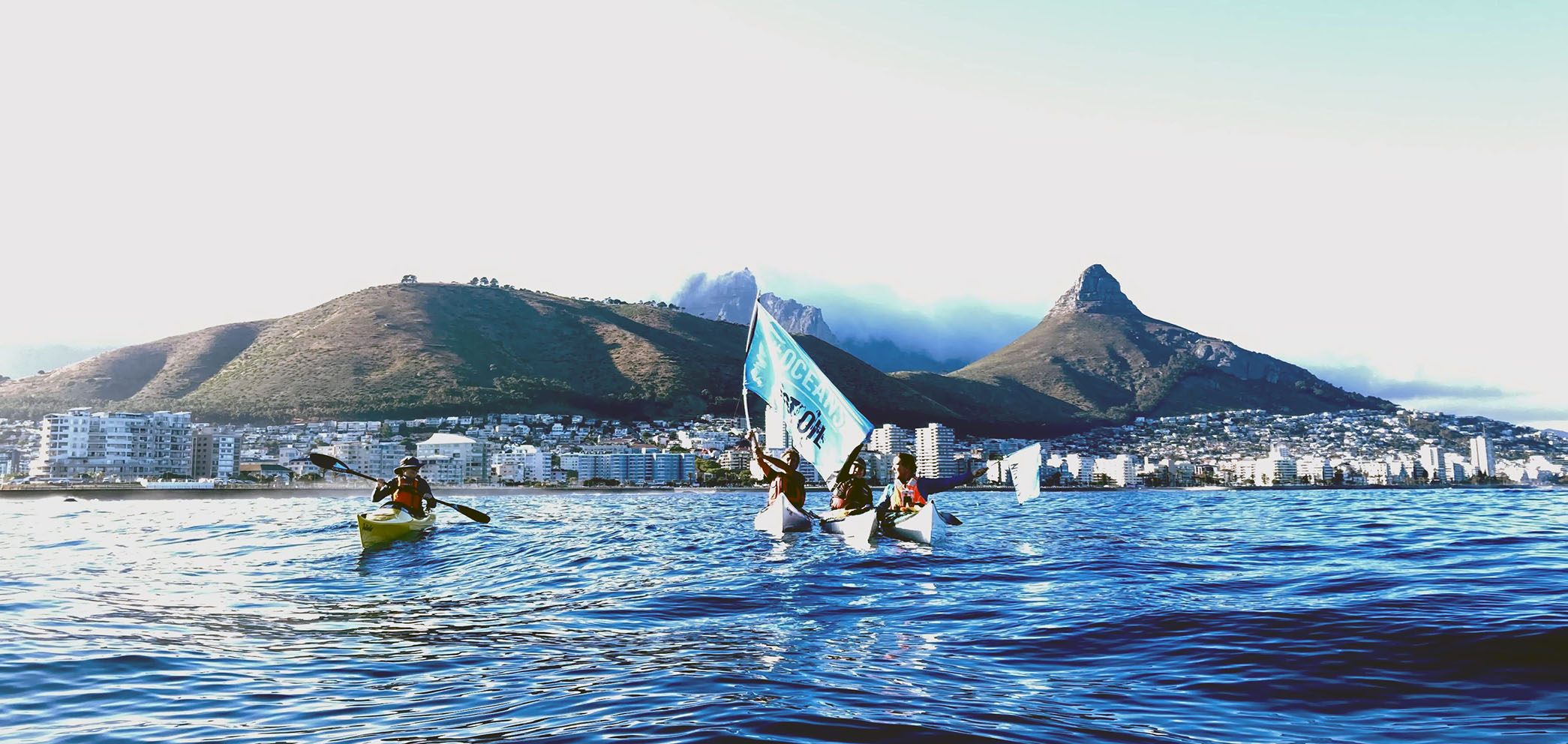
On Sunday, 17 December, and Monday, 18 December, Cape Town paddlers and other seafarers took to the seas to protest against the arrival in South Africa of Searcher Geodata’s seismic survey ship Ramform Atlas. (Photo: Supplied)
But Searcher is adamant that oil and gas exploration in South Africa should be supported as a replacement for coal, claiming that seismic surveys are “the start of that journey towards South African energy independence”.
Searcher’s southern Africa adviser, Robin Sutherland, told Daily Maverick, “We understand that oil and gas is a very contentious subject but truly believe that South Africa will see significant benefit if our efforts are successful, with negligible environmental impact.”
Evidence of harm
However, evidence that seismic blasting harms marine life is growing. According to Dr Cat Dorey from the Australian Marine Conservation Society, the noise generated by seismic airguns underwater reaches a massive 250 decibels — it needs to penetrate rock — and this sound travels underwater faster than it does through air, for hundreds or thousands of kilometres.
“It can kill or injure marine animals close by … damage the hearing of whales and keep them away from key feeding and breeding grounds. Other large animals like dolphins, sea turtles and sea lions could suffer similar effects. We can only imagine how distressing seismic blasts must be for marine animals, like whales and dolphins, that rely on sound to navigate and communicate,” Dorey said.
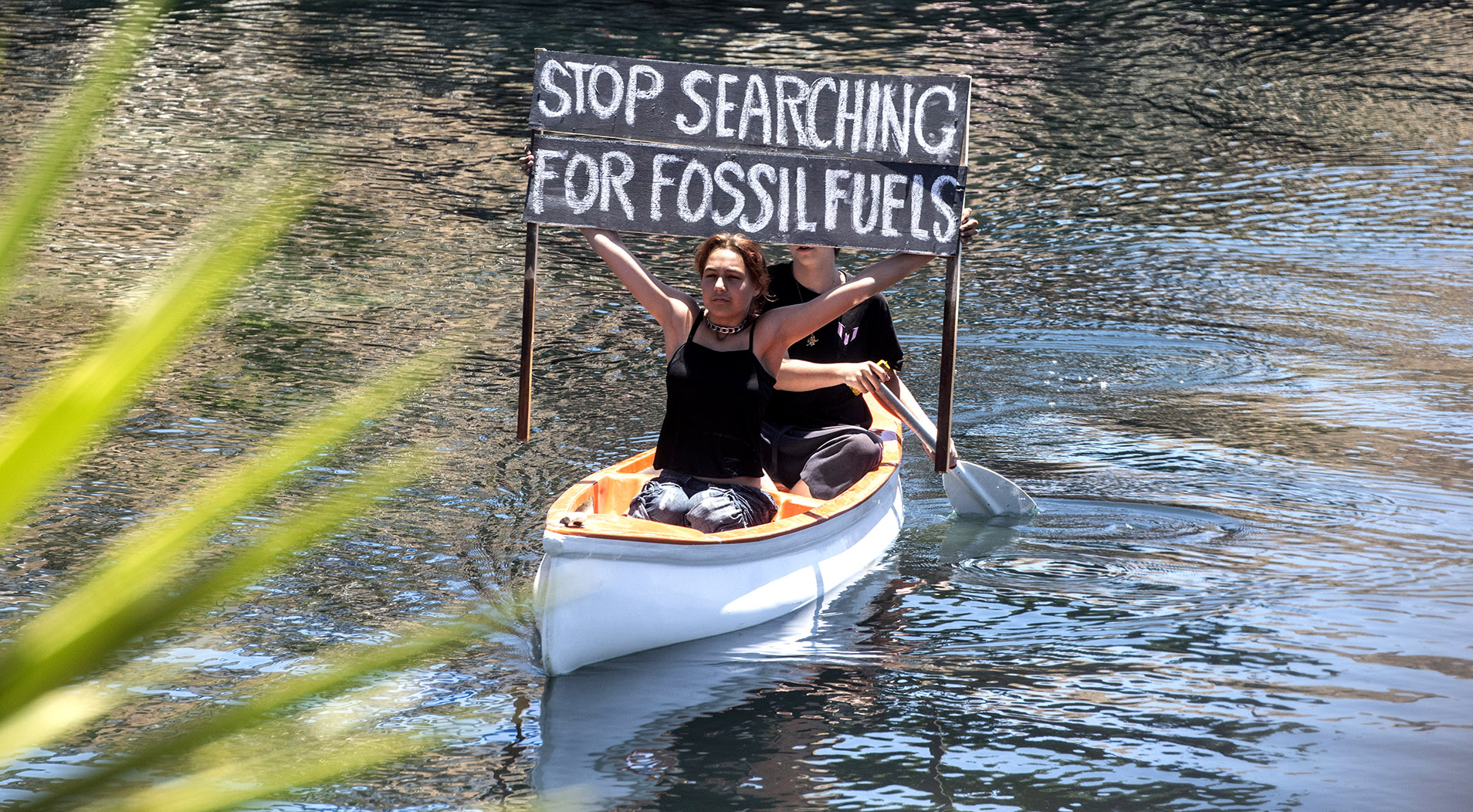
Protesters at the Waterfront, Cape Town display a banner against the arrival of Searcher Geodata’s seismic survey ship Ramform Atlas. (Photo: Brenton Geach)
It is with this knowledge that small-scale fisheries and coastal communities along Searcher’s seismic survey route in South Africa are fearful of what this activity will mean for the marine resources they rely on.
In Searcher’s case document, authored by Sutherland and others, they admit, “While the science tells us that fish and mammals may suffer if they are close (tens of metres) to the seismic source, they do have the opportunity to swim away as a survey approaches and usually do so.”
They further stated that fish further than 4km from the seismic source would not be affected.
“The survey is over 200km offshore and well away from both the ring-fenced fishing area and the coastal fishery, so the prediction using science is that the sound will be weak in the ring-fenced area and undetectable in the inshore fishery. Let’s get the data to find out, and we will share that data,” the document read.
The company intends to use the data it collects during this seismic survey to prove the mitigation measures it is implementing mean that seismic surveys “do not cause significant harm to wildlife or fish stocks”.
“We are collaborating with the Department of Forestry, Fisheries and the Environment (DFFE) on their current research into the impact of seismic surveys on the South African marine environment and particularly the snoek fish species and will make all of the data we record that is relevant to this research openly available to the public,” Sutherland said.
‘Destruction for profit’
At the protest, Sores Florus from the South African Aboriginal Congress said they were there to oppose environmental destruction and companies seeking profits over people.
“Our country and our coastlines are not up for destruction for profit, which is ultimately why these ships are here,” he said.
This seismic survey comes after an application by Searcher was halted in the Western Cape High Court in March last year, but a new application was lodged and the Department of Mineral Resources and Energy granted permission in December last year.
During the first application, the court was primarily concerned that Searcher had not adequately consulted the communities along the coast and that the survey would come close to the shore and interfere with fisheries.
The second application heard that Searcher had invested heavily in community consultation “to explain how the survey works, the mitigation measures in place to prevent any harm to fish or fisheries and the potential economic and emissions benefits to South Africa if oil and gas are discovered.
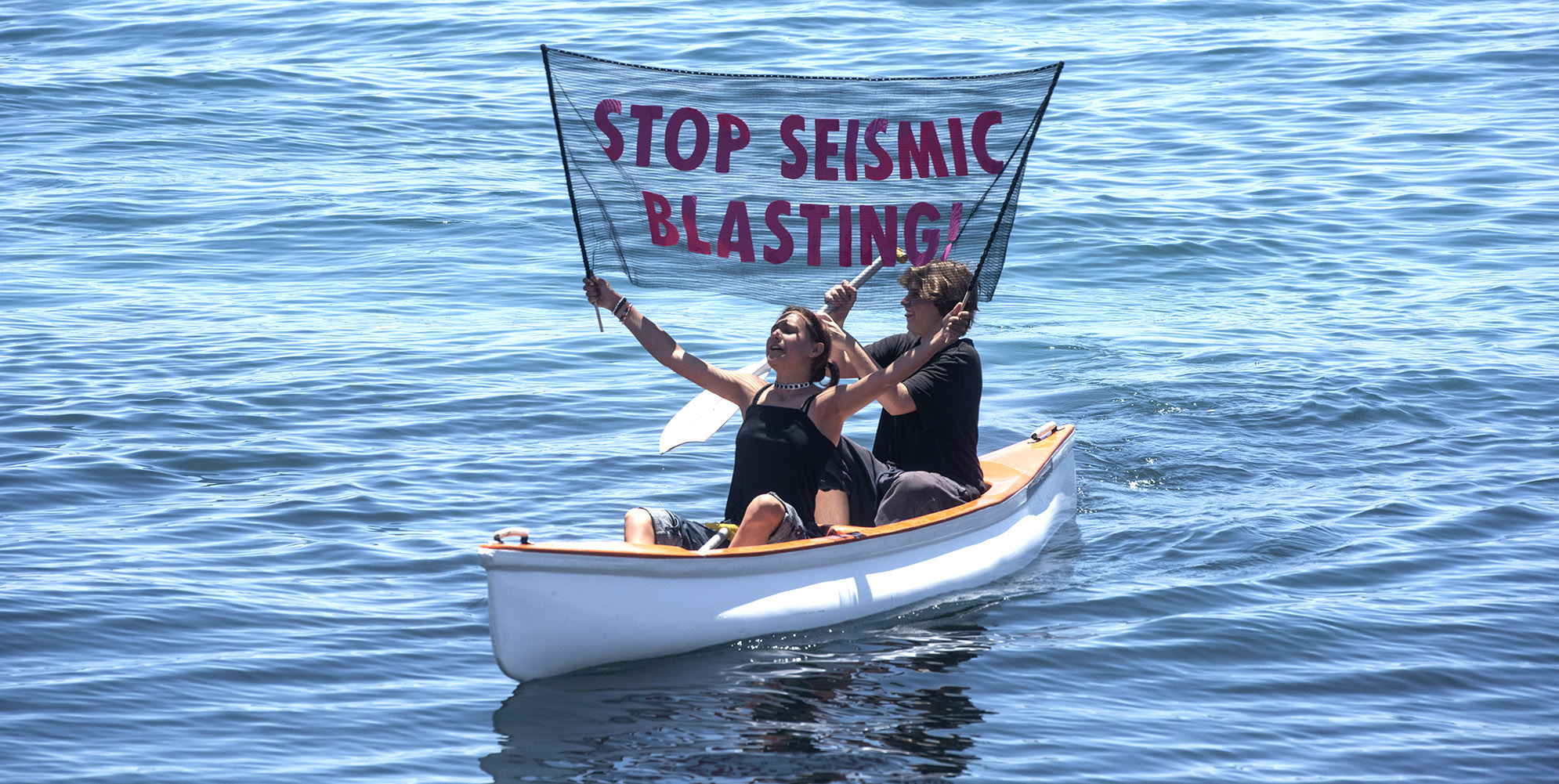
Protesters at the Waterfront, Cape Town display a banner against the arrival of Searcher Geodata’s seismic survey ship Ramform Atlas. (Photo: Brenton Geach)
“We have engaged extensively with communities all along the West Coast, explaining that seismic surveys are not ‘blasting’ but a controlled way to image the subsurface for oil and gas exploration and, increasingly amongst other uses, location of offshore wind farms,” Searcher said.
Sutherland referred to the large oil and gas discoveries across the border in Namibia, where a sovereign wealth fund has been established to use future profits from oil and gas to uplift the population for generations to come.
He added that the consultation with West Coast communities had helped to focus their survey on an area more than 250km offshore — beyond where most fishers work.
However, as reported by GroundUp, Searcher’s environmental assessment acknowledges that the seismic surveys can kill and injure fish, while small-scale fishers have expressed concern about the potential impact on catches when the activities begin.
Sutherland said, “The environmental assessment, which has been compiled locally by South African experts, is extremely comprehensive and identifies that fish more than 4km from the survey will not be aware that the survey is ongoing.
“However, you are correct that it does also identify that at very close range some injuries may occur, which is a very similar outcome to wildlife interacting with trains, roads, wind turbines, shipping lanes, etc.”
‘Our bodies on the line’
Dave Katz, a marine conservationist from Cape Town, who helped organise the protest against the arrival of the Ramform Atlas, said: “This is the southernmost tip of Africa with an insane amount of biodiverse marine life here, and we don’t need to disrupt them any more than we are already doing.
“If we could stop the ship, then we would. Considering a lot of us concerned about this activity don’t have the means to pursue legal routes in attempts to halt the seismic activity, we have decided to paddle out and put our physical bodies on the line with this sea-based demonstration against the arrival of the Ramform Atlas. We need to do what we can to raise awareness.”
The Ramform Atlas is a peculiar-looking ship that is very manoeuvrable when it doesn’t have equipment in the water. It has thrusters that help propel it and it can sail sideways.
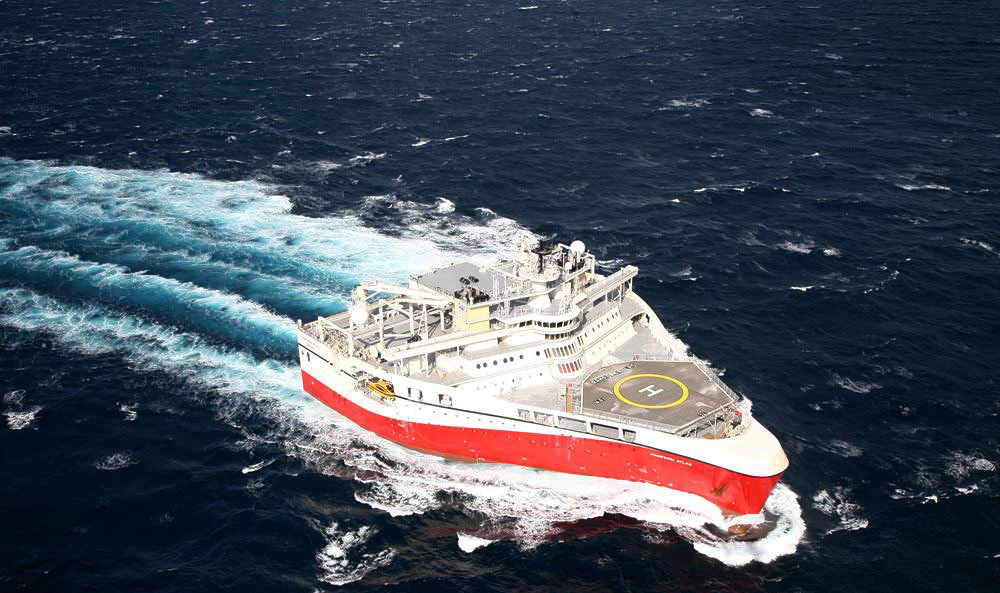
Searcher Geodata’s seismic survey ship Ramform Atlas. (Photo: Supplied by Searcher)
Sutherland said vessels like Ramform Atlas weren’t developed for the seismic industry, but were designed by the Norwegian Navy to be stealth vessels.
“There is a pre-plot of where the [survey] lines will be,” Sutherland said. “It’s basically going to start on the Namibian border and the lines will then come down into South Africa for about a third of the permit area.
“The boat will sail through the survey area in a straight line, and then it turns around and sails back. While it’s turning round, the [seismic] source is off, so there’s no noise and then as it comes back to start the next line again, it starts with the soft-start procedures — a small-source volume to make animals aware that it’s coming, and then it builds up to the full power within half an hour or so. They repeat that process for a series of lines until they finish the project.” DM







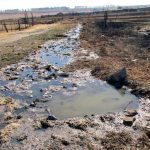











 Become an Insider
Become an Insider
These NGOs will be death knell of our economy if nothing is done to control them. Why should South Africa be the only country in the world unable to benefit from its oil and gas wealth, while millions continue to languish in poverty. Everywhere else the fish run away from blasting, what is different with the fish in SA?
In case you didn’t notice, the whole world (except Trump and Putin), have acknowledged that the burning of fossil fuels is the major cause of fast climate change. As the Earth’s atmosphere warms, it causes more frequent and extreme weather changes. Consequently there are more severe droughts and floods. If you live in South Africa you must have noticed what has been happening over the past decade.
Exploring for new oil and gas fields now, means that our government is planning to consume them some time in the 2030s. Yet South Africa is a signatory to the international conventions on climate change and has committed to reaching net zero carbon emissions along with most other countries in the world.
By constantly allowing our SOEs and petrochemical industries to bypass anti-pollution legislation, we are among the very worst polluting nations in the world. Now you’re in favour of letting this same incompetent and corrupt government take part in the dirty oil business as well?
The only reason for doing this is to make a short term profit for connected comrades at the long term expense of our people and environment.
You must be an ANC cadre!!
No they haven’t
The death knell for our economy is another ANC term in power. Given the track record of looting, corruption and selling off bits of our state to the highest bidder, who do you think will actually benefit from this deal?
Lucky their kayaks flags lifejackets clothes underpants shoes transport (battery powered too) housing food-production, and… civilisation, isn’t literally built on on petrol chemical. With no viable technology to replace it at this time, regardless of what politicians might say..
Without saying there is no issue, because undoubtedly there is, the problem is these do gooders do not have an understanding of exactly what they are actually asking for. So, unless they are 100% FULLY self sufficient (bye bye civilisation) they are (perhaps unknowingly) just hypocrites. “Yes we need oil, just drill in someone else’s backyard.”
It seems you dont have an understanding either. Man-made global warming is not from extracting fossil fuels and turning them into plastic – its from BURNING the fossil fuels for energy and pumping CO2 and methane into the atmosphere in the process. And we now do have better alternatives to this – solar / geothermal / wind / nuclear. And in addition seismic surveys emit noise blasts every 10 seconds 24 hours a day at 250 decibels which has been shown to harm sea-life. One study for instance found 100% death of zooplankton and krill after these noise blasts. The fish feed on krill and zooplankton as do large mammals like whales. And there is further evidence it could damage the hearing of some sea creatures and disrupt their behaviour. The Australian government has suspended seismic surveys over concerns.
Hahaha – all 5 of them